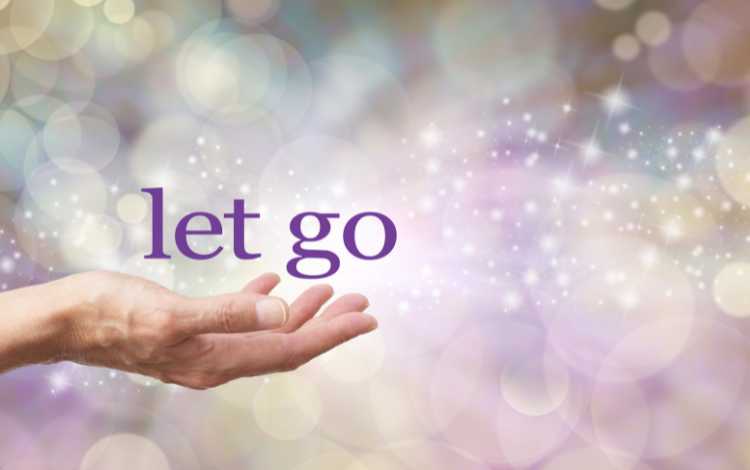[ad_1]

The quote “You could solely lose what you cling to” provides profound notion into human nature and the provision of ache. It is often attributed to Siddhartha Gautama, who’s famously known as the Buddha.
This quote expresses a primary principle of Buddhist and Japanese philosophies, emphasizing the thought of attachment and its relationship to human struggling.
This timeless data reminds us that our greatest sources of struggling often stem from our incapacity to let go of the problems, people, or ideas we keep dear.
Throughout the pursuit of a happier and further fulfilling life, we usually uncover ourselves grappling with one profound actuality: attachment may end up in ache.
On this text, we’re going to uncover the profound concept that “you presumably can solely lose what you cling to,” offering real-life examples, smart suggestion, and insights on how embracing detachment may end up in a further liberated and joyful existence.
Understanding Attachment
Attachment is a primary side of human nature. We join ourselves to people, possessions, beliefs, and even earlier experiences, often believing they define our id and happiness.
Nonetheless, this attachment can convey us pointless struggling when these attachments are threatened, altered, or misplaced.
Residing With out Attachment and Clinging
Understanding the thought of attachment and practising detachment may end up in a further joyful, liberated existence.
By letting go of what you cling to, you open your self as a lot as a world of prospects and better peace of ideas.
As you navigate the complexities of life, don’t forget that embracing detachment is the path to true freedom and happiness.
The Ache of Clinging
Clinging might trigger ache. Listed under are a few examples:
1. Relationships: Take into account a romantic relationship that ended abruptly. The emotional turmoil that follows often arises from our attachment to the idea of that relationship, not merely the person.
2. Supplies Possessions: When your favorite belongings are damaged, misplaced, or stolen, you could experience grief and frustration merely since you might be deeply hooked as much as them.
3. Ego and Beliefs: Clinging to rigid beliefs about your self or the world may end up in stress and battle. When life challenges these beliefs, discomfort follows.
Examples of Detachment Leading to Freedom
1. Embracing Impermanence: Accepting that each factor in life is impermanent and matter to range may very well be liberating. People and circumstances come and go, and understanding this might alleviate the ache of loss.
2. Forgiveness and Letting Go: Releasing anger and grudges, and forgiving people who’ve wronged you presumably can free you from the heavy burden of resentment and anger.
3. Minimalism: Adopting a minimalist lifestyle reduces attachment to supplies possessions, allowing you to focus on what actually points and uncover contentment inside the simple points.
You will benefit from learning our emotional detachment quotes.
Attachment and Struggling
In Buddhism and Nonduality thought, attachment refers to our deep emotional and psychological connection to people, points, ideas, or experiences.
Attachment is a typical human inclination. Nonetheless, attachment is a major provide of struggling.
As soon as we turn into strongly hooked as much as one factor, we usually turn into relying on it for our happiness and well-being. This attachment creates struggling because of, in life, nothing stays static, and alter is inevitable.
The Thought of Impermanence
A core Buddhist instructing is the thought of impermanence. All of the items on this planet, along with relationships, supplies possessions, and even our private lives, is in a seamless state of flux.
We generally tend to face up to or deny this impermanence, clinging to what we think about is regular and enduring. This resistance to range and attachment to the impermanent is the place struggling arises. The additional we cling to points that change, the additional we endure after they do change or are misplaced.
The Idea of Launch and Liberation
The essence of the Buddha’s instructing and completely different Japanese teachings, comparable to Vedanta (Nonduality), is to free oneself from this cycle of struggling.
By recognizing the impermanence of all points and letting go of attachment, one can uncover inner peace, contentment, and liberation from struggling.
It’s not about abandoning or avoiding each factor nonetheless considerably understanding that clinging too tightly may end up in ache and that loosening these attachments may end up in freedom.
The Path to Liberation
The Buddha’s teachings and the teachings of various well-known religious teachers, Ramana Maharshi and Nisargaddata Maharaj, coronary heart on the pursuit of liberation.
To appreciate this liberation, one ought to come to phrases with the impermanence of all points and be taught to let go of maximum attachments.
This quote, “You Can Solely Lose What You Cling To,” emphasizes that by clinging a lot much less tightly to people, possessions, or ideas, we’ll cut back struggling and uncover a way of freedom and inner peace.
Smart Advice for Embracing Detachment
- Meditation: Working in the direction of meditation and mindfulness may additionally allow you to observe your attachments and permit them to go further merely.
- Cultivate Gratitude: Specializing in what you’ve got acquired considerably than what you lack can cut back the need for excessive attachment.
- Embrace Change: Embrace the idea that change is a seamless in life. Instead of fearing it, welcome it as a chance for progress.
- Look at detachment and Nonduality: Study books and articles in regards to the deserves of detachment and how one can embrace it in your life. Most literature about this matter comes from Japanese philosophies.
- Set Boundaries: Arrange healthful boundaries in relationships to care for your private sense of self whereas letting go of administration over others.
Letting Go Leads to Peaceful and Contented Existence
In essence, this quote encourages us to reflect on the implications of our attachments and to ponder some great benefits of practising detachment.
By recognizing the transient nature of all points and learning to let go of what we cling to, we’ll alleviate loads of the struggling that arises from the human tendency to face up to change and impermanence.
It’s very important to note that whereas this quote is expounded to Buddhist and Japanese teachings and philosophies, its message can resonate with people of various backgrounds and beliefs.
This quote, attributed to Buddha (we aren’t optimistic whether or not or not these are his phrases or one other religious coach acknowledged them), offers a typical notion into the human experience, reminding us that letting go of maximum attachments may end up in a further peaceful and contented existence.
Image provide – DepositPhotos
[ad_2]










